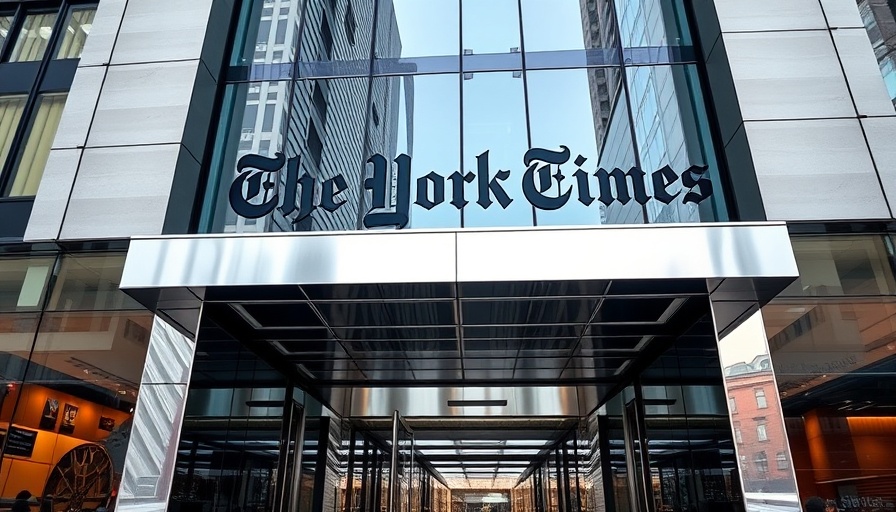
The New Landscape of AI Legal Battles
In a significant legal development, the court has advanced The New York Times' lawsuit against OpenAI, raising crucial questions about intellectual property and copyright in the age of artificial intelligence. The lawsuit stems from allegations that OpenAI used copyrighted articles from the Times to train its AI models without obtaining permission. This has sparked a broader discussion regarding how the growing use of AI intersects with traditional media rights, and whether the copyright laws in place are sufficient to protect content creators in the digital era.
The Impact on Journalism and Content Ownership
Given the increasing reliance on AI-generated content, the outcome of this lawsuit may set important precedents for the journalism industry and content ownership. Many creators fear that AI models could undermine their work, diluting its value and eroding the revenue generated from original content. Legal experts suggest that if the Times wins, it could pave the way for stricter regulations on how AI companies source and utilize copyrighted material, potentially reshaping the future of content creation and media business models.
Broader Implications for AI Technologies
This case is not just about one publication; it symbolizes the tension between innovation and regulation that often accompanies technological advancements. As AI technologies become increasingly sophisticated, the legal framework addressing their development and deployment must adapt accordingly. The court's decision could influence how companies like OpenAI and others approach data collection and usage in their AI training processes, possibly leading to a more cautious and regulated environment for AI development.
Understanding the Copyright Dilemma
A key argument in this lawsuit revolves around the concept of fair use—whether OpenAI’s practices fall within legal boundaries despite its extensive training on potentially copyrighted content. The nature of AI creates unique challenges, as traditional copyright laws were not designed to address how these systems ingest and learn from vast datasets made up of existing works. As discussions unfold, content creators and technology experts alike must navigate an increasingly complex digital landscape where the line between inspiration and infringement is blurred.
What Lies Ahead
Looking forward, this lawsuit not only influences the relationship between journalism and AI but also reflects the urgent need for legislative action that addresses these emerging technologies. As society moves deeper into the age of AI, understanding the implications of these developments will be essential for content creators, technologists, and policymakers alike. The ruling in this case could become a cornerstone for future legal frameworks governing AI technology.
In conclusion, as the litigation progresses, it serves as a reminder of how crucial it is to understand and adapt to the evolving interplay between technology and traditional industries. By following this case, stakeholders will gain insights into the safe boundaries of innovation and the necessary protections required for intellectual property in an AI-driven world.
 Add Row
Add Row  Add
Add 




 Add Row
Add Row  Add
Add 

Write A Comment